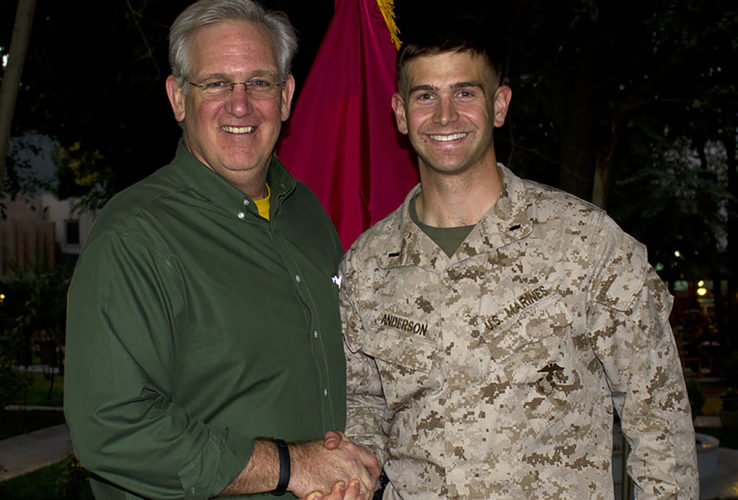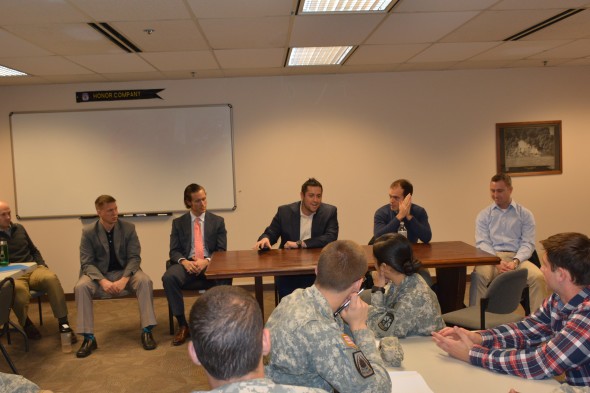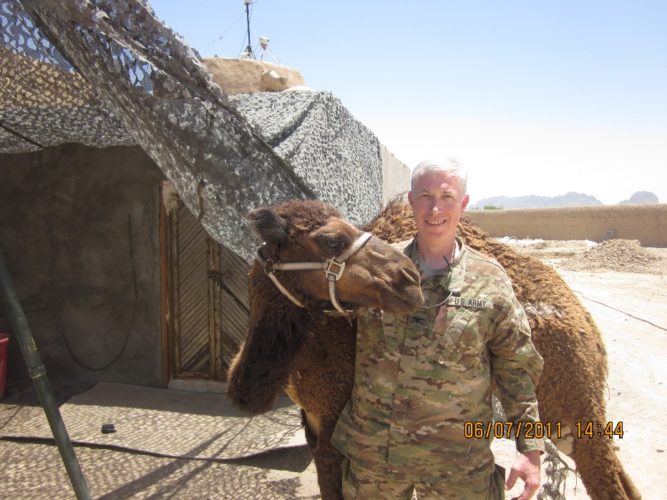Photo, above: Jerrod Anderson, right, with Missouri Gov. Jay Nixon at Anderson’s base in Kabul, Afghanistan in 2014.
The personal decision to leave active duty service, and transition from the role of military to MBA student, was one of the most difficult and important decisions I had ever made. I decided to pursue a Master of Business Administration because I wanted to continue growing as a leader after the Marine Corps. However, having had little exposure to the business world, choosing the right program proved to be challenging.
After researching numerous MBA programs, I was contacted by a friend and fellow Marine who was an MBA student at Washington University in Saint Louis. He described the unique culture at Olin and the incredible support structure that the school provides to transitioning service members.
New students truly hit the ground running at Olin, and the pace of the program can be difficult for those coming from non-business backgrounds. To ensure that veteran MBA students are prepared for their first semester, the school partners with the Olin Veterans Association (OVA) to organize a robust two-day program—Boot Camp—which provides incoming veterans with a comprehensive overview of the MBA program and career opportunities. New veterans are immediately introduced to the OVA network of alumni and other individuals who will continue to support student veterans throughout their two years at Olin. The Boot Camp program was extremely well organized and enabled me to make a seamless transition from the Marine Corps to the classroom.
The OVA has not only provided a professional network, but also the sense of community and belonging that I valued while on active duty.

Olin MBA Veterans visit tour AB InBev in late August.
The OVA is a close-knit organization where alumni are personally invested in the development and success of current MBA students. I could not have asked for a better way to transition into a career in business. If you are considering pursuing an MBA, I highly encourage you to consider Olin and explore everything that the institution has to offer.
Jerrod Anderson, Olin Veterans Association, is a 2018 MBA Candidate in the full-time MBA Program at Olin Business School. Learn more about Olin’s top-ranked full-time MBA program and resources for military veterans.










